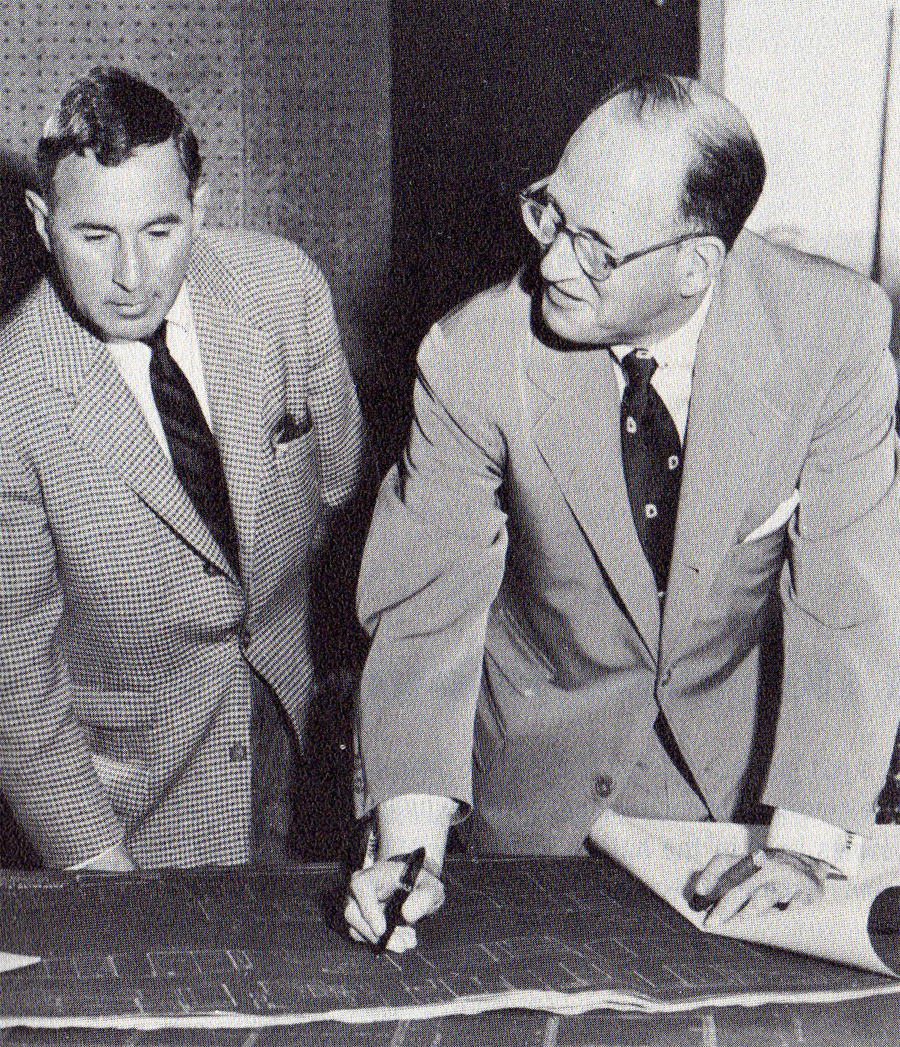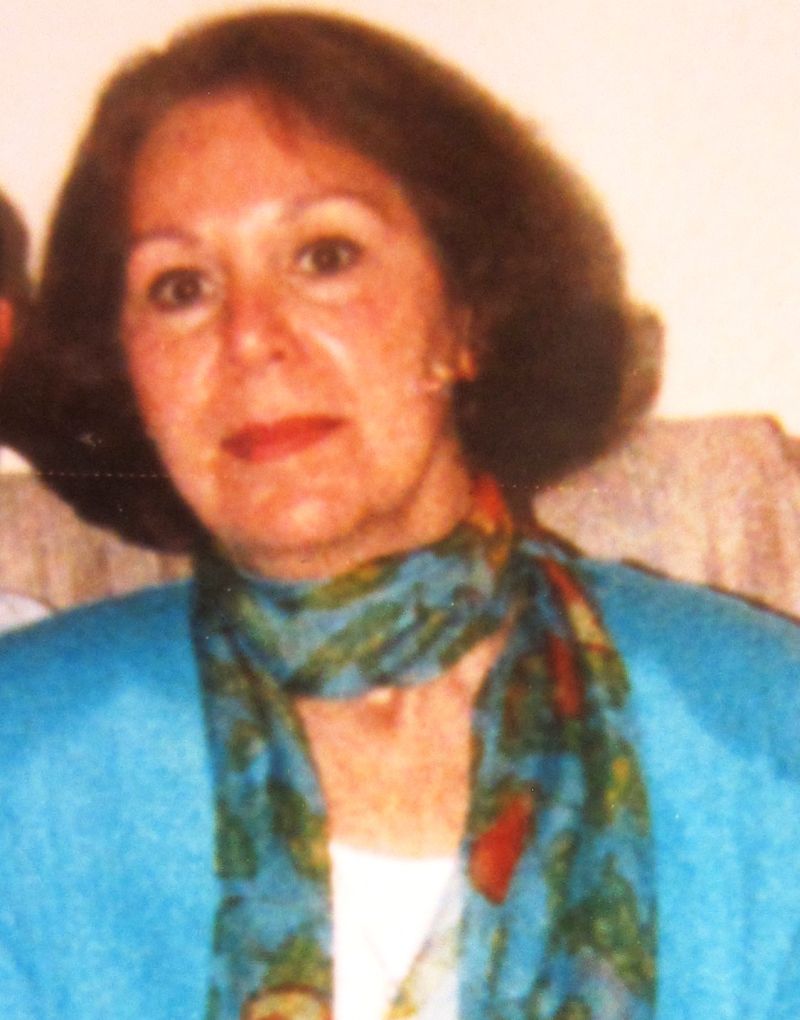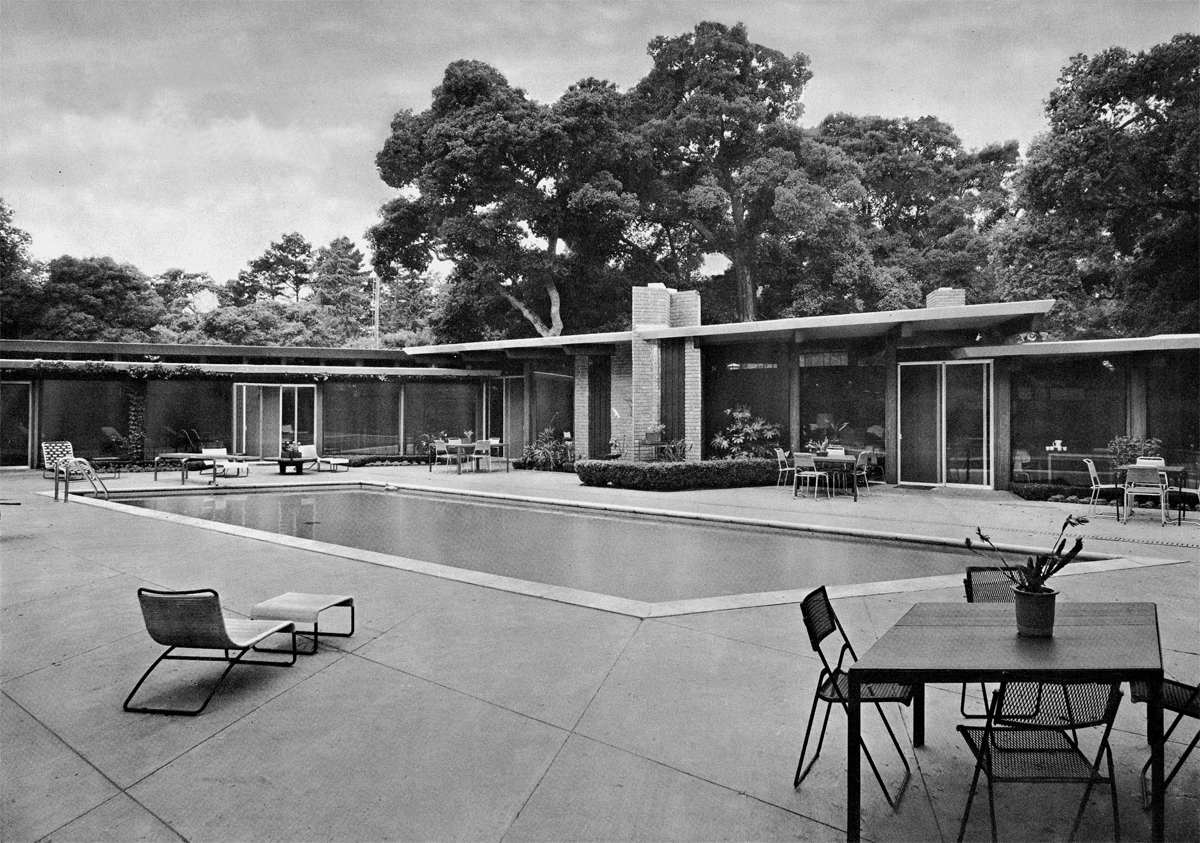
Former Aide Recalls the Soft Side of Mr. Eichler
 |
|
|
His friends called him 'Joe,' and that’s what we call him today. But the people who worked for Eichler Homes called him 'Mr. Eichler,' and with reason.
“All of us called him ‘Mr. Eichler.’ You never called him ‘Joe,’” says Ida Gronemeyer, who worked for Eichler from the early 1960s till 1974. “I was with him till he passed away,” she says.
“He was very professional, and looking at him, he scared you, because he was strict,” she says, adding, “If he liked you, you were fine.”
“He was there [at the office] all the time. He took his business really seriously,” she says. And yes, she says, he could show a temper. “He didn’t do it a lot, but he did it.”
Gronemeyer, 87, who lives with her husband in Palm Desert, says she and Joe hit it off – though she never socialized with her boss. “He was a very, very nice man if you could get to him. He wouldn’t sit and giggle with you,” she says.
“He was a very strong person, and he was very difficult to work with. But I got along real well with him for some reason,” she says. “He took me under his wing.”
Although she was not Joe’s secretary, one day he asked her to handle a secretarial task. “He called me in and he says, ‘Will you take a letter for me?’ I said, ‘I don’t know how to take shorthand.’ He said, ‘I’ll go slow for you.’ Then he used a word I’d never heard of. He said, ‘You don’t know how to spell that, do you?’ ”
 |
|
|
Her fondest memory of her boss, one that still moves her to this day, is this:
“I went to Mr. Eichler and said, I have a sister who’s really sick. I want to go home and see what I can do to help. You might as well give my job to somebody else because I don’t know when I’ll be back.”
“He said, ‘No, I’m waiting for you to come back.’” She was gone two months. Eichler called her and said she still had her job. “That really made me feel good, that he would call me, and that he kept the job for me.
Gronemeyer thinks Eichler may have taken to her because she comes from a large and very close family, 12 girls and three boys. “He said, ‘I have two sons and I can’t control either one.’”
Gronemeyer, who was living in Sunnyvale, joined Eichler after spotting an ad seeking a payroll clerk. “I had some office experience from back home [in upstate New York],” she says. Gronemeyer’s education stopped after high school.
“Later,” she says, “I got upgraded to accounts receivable. He had contact with me every day to see what had come in, and so forth.” She went on to become office manager.
She stayed with the firm as it expanded and contracted and expanded again. She remembers working in the firm’s large office in Palo Alto, and in smaller offices in Los Altos, Burlingame, and San Francisco.
In a way, it was a family firm. Ned Eichler, the firm’s marketer, had already left. But Gronemeyer remembers Ned’s brother Dick, “very laid back, very nice,” but not business-like at all. “He was more of a playboy. Ned was more responsible, more taking after his father.”
 |
|
|
She also remembers Lillian Eichler, the boss’s wife, stopping by, sometimes with grandchildren in tow. “She adored those kids.”
“His wife was a nice person, but she was uppity,” Gronemeyer says. “Mr. Eichler wasn’t. After he died, she didn’t know how to do a thing, let alone the business. Around the home she didn’t know how to do anything. She would call me and ask about ironing.”
“She was a woman you couldn’t really get close to, not for someone like me,” Gronemeyer says. Lillian did visit when Ida was hospitalized, and after Joe died they visited again.
Gronemeyer also visited the Eichlers in their Atherton home, though she forgets the occasion. “I remember his house more than any of the [other Eichler homes]. It had a patio in the center of the house with a roof that opened up. I liked that. I never saw anything like that. To me, it was a fun house. It was very nice.”
Gronemeyer never did become a great fan of modern architecture, though. “I can take it or leave it,” she says. “Today it’s become more and more popular, especially in this area,” she says, meaning the Desert.
She remembers the end of Eichler homes, too, the office slimming down, Ned returning as his father fell ill, Joe hospitalized. “He’d call me and ask, how are things going?” she recalls. “He never did come home from the hospital.”
Gronemeyer stayed on as Dick took over the firm. “He really wasn’t interested in the business. I was alone trying to figure out what to do with the company.” She helped close the firm. “We had to sell the furniture and all kinds of stuff.”
Mr. Eichler’s funeral was well attended, she says. “He had a lot of people who liked him. He was a good person.”
- ‹ previous
- 262 of 677
- next ›



